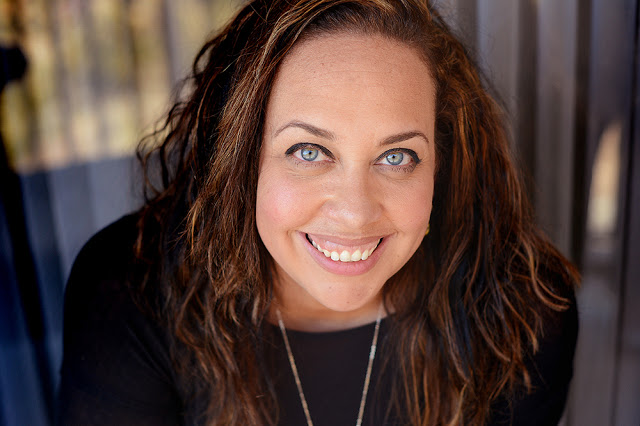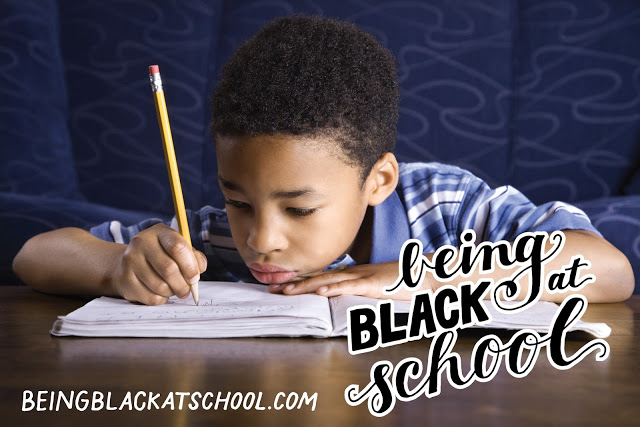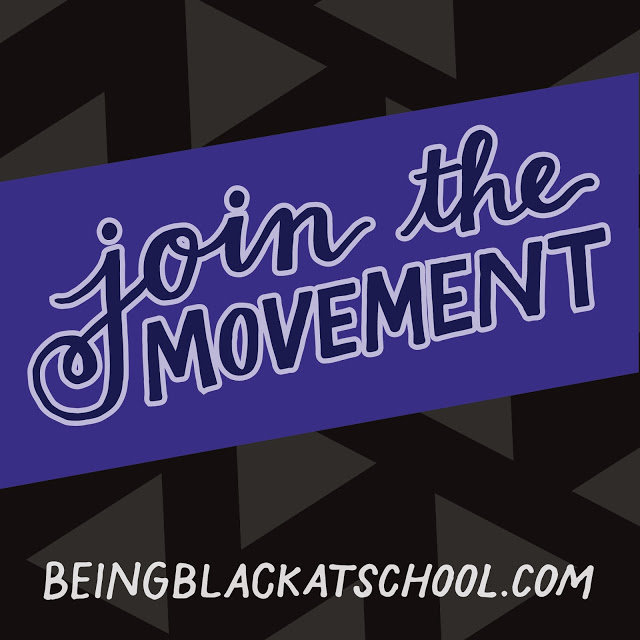Today’s guest post is from my dear friend Kelly Wickham Hurst, who is a 23 year public school veteran both in the classroom as a teacher and as an administrator for the last 10 years. She recently founded Being Black at School to advocate for the marginalized Black students who still, according to data and research, are disciplined at 4 times the rate of their white peers. Kelly asked me to sit on the board of this organization and I was happy to join her. She is the married mother of 6, and is sharing about why an organization dedicated to making school safe for black children is necessary.
We educators are notorious for having the back-to-school nightmare where we forget to set the alarm clock or accidentally show up without pants (or maybe entirely nude!) or we forget to call for a sub. All of these nightmares stem from the fear that we’re not prepared or ready for the upcoming school year.
Last year, I had a different nightmare. I wrote it down in my journal because it was so different from the ones I had each year. In the dream I was sitting in a large room for professional development and there was a speaker who had a microphone telling us stuff that I was disagreeing with but when she asked for volunteers to share their experience she refused to call on me. One time, she gave me the microphone but turned it off so no one could hear me.
The way that school year went it’s no surprise that my nightmare foretold of how little people wanted to listen to me and that’s for one major reason: I want to talk about how we’re doing some things wrong for Black students.
One of the things I wanted to fix was the topic and tone of conversations about Black students. Teachers lounge conversations can be harsh and after the first 2 years of teaching I stopped hanging out and eating lunch there altogether. We educators can be a compassionate bunch and I was party to a host of teachers who wanted the very best. But the very worst of us comes out in the things we say in the lounge. I’ve heard all the following:
Why Deangelo can’t bring a pencil to school is beyond me. He sure does have nice tennis shoes all the time, though. His parents only care about that.
How is it that Ciara can get pregnant as a poor child but our own friend, Amy, has had fertility problems? She’s the one who needs the baby, not some skanky teenager.
I’m so sick of this saggy pants on the boys. Today I’m pre-writing referrals to the office to get them out of my class when I see them. It’ll save me time. Maybe I’ll even write their names on the top because we all know who is going to do it.
These are comments I heard repeatedly over my years. They were often coded and couched in terms that could seem benign except when you realized that all of them were directed at Black students. It’s hard to get someone to see the bias they bring into a discussion of students when
Your curriculum walks in the classroom door as soon as your students do. They bring with them cultures very different from the teachers and this has been no more evident than when you realize the data says that 83% of American public school teachers are white yet the Department of Education projects that by 2022, 54.8% of public school students will be of color. Without adequate multicultural or diversity training, our whitewashed classrooms can be a detriment to our students of color. Research has shown race plays a significant role in influencing how teachers see their students’ potential for academic success, with white teachers being 30 percent less likely to believe a Black student will graduate from college compared to evaluations on the same student by a Black teacher. Despite national underrepresentation in gifted learning programs, Black students taught by Black teachers are assigned to gifted programs at almost the same rate as white students, and three times more often than black students with similar academic ability and family background who are taught by teachers of other races.
The issue is more than just assigning students to advanced programs. Teacher expectations for a individual student can significantly affect the student’s performance and classroom behavior.
These things certainly led up to my finally having to leave the institution of public education but only because I wanted to change it from the outside. Part of the nightmare year ended with some things that happened this spring which floored me as a Black administrator. Six different students reported to me that teachers were talking badly about me. As someone who stays out of the lounge, this doesn’t surprise me. It’s the way in which the teachers did this. While sitting in class one day, one of them noticed that the teacher was using her computer to iMessage. When the student told me this I scolded her for looking over a teacher’s shoulder at her desk.
“No, she was at her desk but she had the computer hooked up to the monitor. Everyone saw what she said. We told her we could see it and she ran over to unplug it. One of them called you a bitch. Why would a teacher call you that?”
The student was, admittedly, a little heartbroken having to tell me what she saw. Eventually, I called each of the students to my office to get an account of what happened and every story was consistent. The teachers were making jokes about where I was for the day (visiting elementary schools for registration which is a part of my job) and they suggested that I was probably hiding out from the superintendent who was visiting that day. Apparently, they had complained to the superintendent that I was inappropriate in a Teaching Tolerance article where I suggested that students of color didn’t get chosen for our Student of the Month breakfasts. Of course, it was true. I kept the percentages on a monthly basis and they were overwhelmingly white students who got picked.
Here’s the thing about working in education: I’ve been called a bitch plenty of times. Mostly by students, sometimes by parents, and when it’s been by teachers it certainly hasn’t been broadcast to an entire class by accident. Worse, it damaged the relationships between all those students and the two teachers they knew were talking about me like that. Those kids didn’t trust them anymore and they admitted to me that they just wanted the school year to end if someone who looked like them wasn’t respected as an administrator.
How, exactly, am I to convince students that they need to get an education and become a respectable adult when they saw how I was treated? How do I show them that they can rise above or, heaven forbid, pull themselves up by these imaginary bootstraps to be respected?
It was the response that finally broke me. The principal called the teacher in and asked that she do it alone. She didn’t want me there and for good reason: she let her off the hook. She asked if she’d done it, the teacher said ‘no’, and that was that. Six witnesses, all students of color, weren’t worthy enough in her investigation. No one from the IT department was called to check on it since everything we do is monitored. It was a done deal and one that allowed abuse to continue towards me for asking for equity for students of color. That’s what this all leads back to and why they felt it was okay to do this.
That’s when I was done. I couldn’t change a system that didn’t even believe me in instances like this that were damaging to school culture, but we have to be honest about that: school culture in systemic racism will always protect whiteness.
For now, the nightmares have stopped. Seeing my therapist increased for a while and when a friend said to me, “Kelly, you’re on medication. Your health is at risk. This job is killing you.” I knew she was right. I knew my time was over and that I wanted to keep being an advocate for those Black children in schools anymore.
I wanted you to know what it was like for me and I want you to join me to change the system from the outside. That is my ultimate dream. At least I still dream.
If Kelly’s mission resonates with you, please consider giving financially to the movement. You can learn more about how you can help here.




Thank you for telling your truth. Prayers this reaches millions.